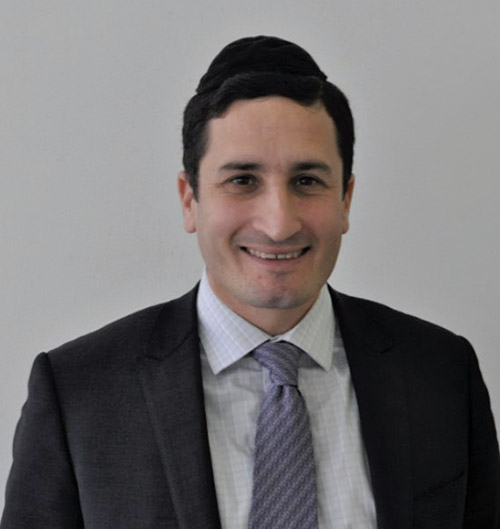
Most students eagerly anticipate the end of school and start of summer. For children who attend a camp, the activities, as well as lack of homework, is a much-appreciated break. Not every camp experience is smooth sailing for every child, and for some parents there is an added stress as their child now has to navigate a new social environment. Where camp should be fun, this can often become an environment that highlights their impulsivity or opposition, as the need for teamwork and cohesive group dynamics is a necessary element, but challenging for some. For these children, there is a fun and successful option that exists within a regular camp environment. The Diamond Summer Program is a research-based behavior-modification program in a camp with over 20 years of proven success. The program, which is based on a landmark study funded by the National Institute of Mental Health (NIMH), is specifically designed to improve children’s social behavior, friendship skills, academic competence, problem-solving skills, self-esteem, classroom behavior, sports competence, rule following, home behavior and anger control. The Diamond Summer Program is based on the William Pelham Summer Program, a comprehensive summer treatment program for children with behavioral, emotional or learning challenges.
“Camp is actually the perfect environment for addressing these behaviors and improving social skills,” said Dr. Yitzchak Goldberg, director of the Diamond Summer Program. “The unstructured nature of camp, as compared to school, as well as the constantly social environment allows us to work on real skills in the moment in a natural social environment.” Currently, the Diamond Summer Program exists in two New York camps: Simcha Day Camp, and Camp Atara (for girls). Because of the unique nature of their camp within a camp, families have sent their children from long distances—Brooklyn, Riverdale, Queens and New York City—across state lines—Lakewood and Passaic—and even traveling from outside the tri-state area, from Detroit and as far as Los Angeles.
Goldberg actually began his career as a counselor and lead counselor in the early years of The Diamond Program, a role that shaped his choice to go into school psychology. Currently the principal of Yeshiva Derech Eretz in Brooklyn, he maintains a private practice in addition to being a sought-after lecturer on topics dealing with behavior in schools. He worked with the OU, BJE, Project Inspire and Torah U’Mesorah among others, bringing awareness of oppositional behaviors and attention deficit disorders as well as appropriate methods of addressing them within the home and classroom. Because of his constant involvement in these topics, he makes sure The Diamond Summer Program provides the tools needed for students to come back to school feeling the success of summer.
Because of the organic nature of social interactions in camp, the skills developed over a summer carry over into the classroom during the school year and become a part of who the child is. “What we seek with this program is not only a behavior program; that is just one part,” said Goldberg. “We are a very clinically based program. The behavioral component gets the kids into a mode of behavior issues, but then we get into the underlying issues of why this behavior happens.” Goldberg explained that the Diamond Summer Program staff members have clinical meetings daily where they discuss each camper in their program, what the goals are, where there is progress, and where are the difficulties.
“Even though it’s a clinical program, it’s still a really fun program,” said Goldberg. “Our kids love it. They have a great time because it is in a camp doing fun activities with these young and energetic counselors, and they feel good about themselves because they are learning new ways of interacting.”
Now Goldberg is working to bring the Diamond Summer Program to New Jersey camps. “Even though we have students traveling to us from New Jersey, it is not easy for them and we see the need here too,” he said. A strong part of their summer program is the parent involvement, and this is harder if a child is boarding away from home or traveling a great distance to get to camp. “When the parent and the child are both involved, these are the children we see make the greatest improvement.” In addition, as helpful as one-on-one therapy with a professional can be, nothing can replicate the organic interactions and room for instant feedback that happen in the camp setting with a group of peers and professional adult guidance. “A social environment is the best way,” said Goldberg,
explaining how the program follows a fun camp schedule but with a rewards system designed for each child, as well as group activities designed to foster an overall goal of improved social dynamics. “When you have a whole group working together on a social goal, it’s an exponentially greater benefit than one kid working on a social skill on her or his own.”
Goldberg wants parents and educators to understand that the type of student who could be a candidate for The Diamond Program does not have to be an extreme behavioral concern. Often it is someone who struggles more than their peers and is looking to take control and make a positive change. “We’re really excited to see that there are camps and families looking to bring this to New Jersey,” he said.
“The goal of The Diamond Summer Program is not just to transform a child, but to allow them to see themselves differently,” said Goldberg. “This child may go from someone who has difficulty controlling their anger or following directions, to one who now feels control over his anger and emotions, and that adults see him positively.” He added, “And it’s just a lot of fun.”
By Jenny Gans









